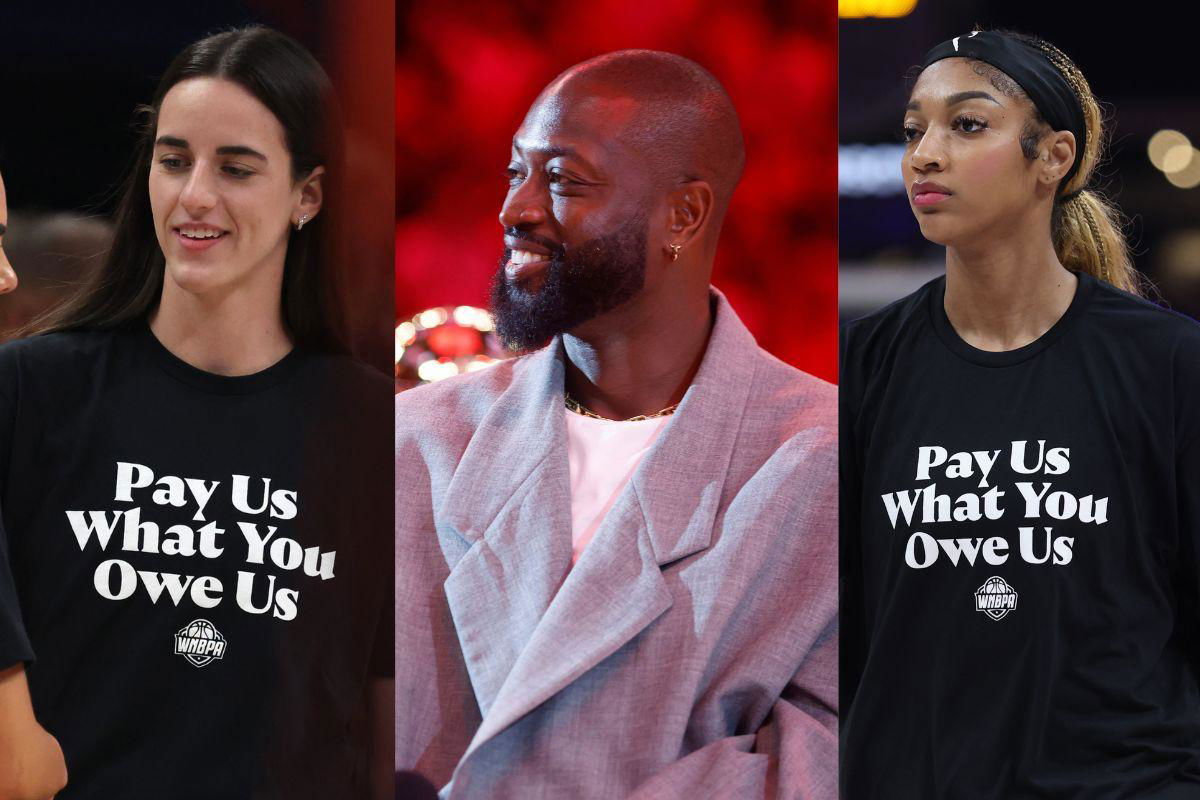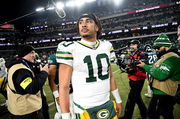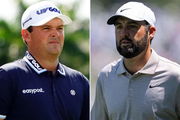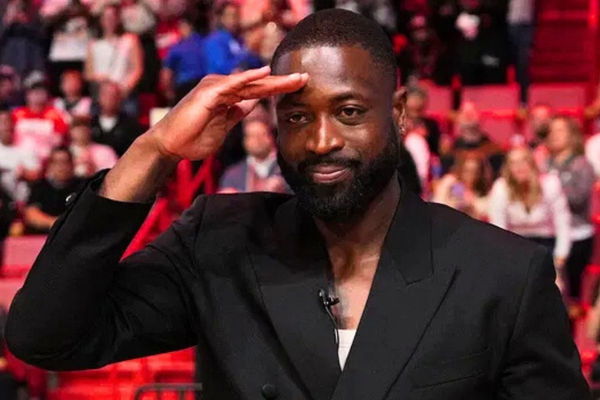
Imago
Image Credits: Imagn

Imago
Image Credits: Imagn
If accountability wore a headband and spoke with a Miami drawl, its name would be Dwyane Wade. The Hall of Famer didn’t step onto a court this week, but rather stepped into a conversation. On the latest episode of Time Out with Dwyane Wade on the WY Network, the three-time NBA champ offered a masterclass in context, aimed not at box scores or highlight reels, but at mindset. And no, he didn’t name names… but if Caitlin Clark, Angel Reese & Co. were listening, they probably got the message loud and clear.
Watch What’s Trending Now!
What’s got Wade all fired up? Not one moment, but a million little ones, the chorus of criticism surrounding WNBA All-Star weekend murmurs about entitlement, complaints about younger players “not getting it.” Wade’s take? Before you judge the new kids, understand the system they were handed.
“The one thing is, and what a lot of even us NBA players, what we don’t understand when it comes to the guys before us, is we always take it as hate, a lot, right? Like, ‘Oh, the older guys are hating on us,’ right?” Wade started. “And it seems like and it feels that way when you’re a younger guy and older people are talking… about your way, the way you play the game, or talking about the money you make.” That moment of self-awareness? That’s the pivot. Because Wade’s not just offering a defense here. He’s issuing a wake-up call. But what particularly started it all?
ADVERTISEMENT
Before the opening tip, several WNBA stars made a subtle-but-clear fashion statement during warmups, rocking black tees that read: “Pay Us What You Owe Us.” The slogan wasn’t just for style points. It was a rallying cry. A reminder that while the league’s growth is finally getting flowers, the roots of inequality, especially around pay, charter flights, and media coverage, are still tangled deep. It was classy, bold, and completely on-brand for a group of athletes who know exactly what they bring to the table.
“I think this is a moment where you can recognize and realize that the generations before you; they go through a lot to put on eventually for you,” Wade said. “You’re looking at right now—the WNBA women… they’re putting on for yes, they’re talking about themselves, but ultimately knowing that some people in this league today will not get a chance to experience what a league would eventually be,” Wade said. But this is way more complicated than that.
When Dwyane Wade came into the NBA in 2003, the concept of players getting a 50-50 split of basketball-related income was still a fantasy. It wasn’t until the 2011 lockout that the NBA formalized a revenue-sharing model that gave players an even stake in the league’s booming economy. Before that? You played for love, for legacy, and if you were lucky, maybe a good sneaker deal. But today?
ADVERTISEMENT
Dwyane Wade in big brother mode?
Today, there are players who make more in a single season than legends like Charles Barkley, Shaquille O’Neal, or Michael Jordan did in an entire career. “You got guys making $60-$70 million a year now,” Wade said. “Back in the day, people contracts wasn’t even that overall. But they had to do so much to make sure that this game continued to keep going… so we can eventually get to this place.” Wade also drew a direct line between those NBA vets and today’s WNBA players.
ADVERTISEMENT
Top Stories
Patrick Mahomes’ Dad Faces 10-Year Prison Sentence After Chiefs QB’s Father Reportedly Violated Probation Terms

Prayers Pour In From Jordan Love & Co. as Cowboys Star Mourns Tragic Personal Loss

Justin Jefferson Makes Final Decision on Joining Buffalo Bills After Further Damaging J.J. McCarthy Relationship

Matthew Stafford Makes Final Decision on Retirement After Narrowly Beating Drake Maye For NFL MVP

Multiple PGA Tour Pros Stopped from Playing as WM Phoenix Open Round Is Canceled Over Recurring Problem

PGA Tour Split Into Two as Scottie Scheffler Confirms Stance on Patrick Reed’s Return


USA Today via Reuters
Jan 14, 2024; Miami, Florida, USA; Former Miami Heat player Dwayne Wade salutes the fans and cameras after a special ceremony during halftime of the game between the Miami Heat and the Charlotte Hornets at Kaseya Center. Mandatory Credit: Jasen Vinlove-USA TODAY Sports
It’s about paychecks, yes, but it’s also about patience. We can’t measure the growth of a league in one contract or one viral moment, but in the slow, generational grind. “We in a space right now where we can see a league that is growing in front of our eyes,” he said, referencing how Candace Parker, despite being one of the greatest, “never got to experience the things that they’re experiencing right now.” And no, he wasn’t throwing shade. Far from it.
Wade’s reflections land differently because he’s lived both ends of the growth curve. He’s seen the locker-room wars of old and the luxury lounges of today. And when he saw players wearing “Pay Us What You Owe Us” shirts during WNBA All-Star warmups, he didn’t flinch. “So them putting them shirts on wasn’t disrespectful to nothing,” Wade said. “It was just more so like this entire league wants to see the steps go where it needs to go. It was cool to see.”
ADVERTISEMENT
That was Dwyane Wade playing big brother, so to speak. The guy who knows what it’s like to be young, rich, talented… and misunderstood. And now? He wants today’s stars to stop seeing every critique as “hate” and start seeing it as a baton. “You hope that you have veterans in there arguing about the future of the game and trying to push it forward,” he said.
“I think this shows a lot of us, you know, kind of we—we’re sitting in the… epicenter right now of the growth of the game in the WNBA.” And if there’s a message here, it’s that legacy doesn’t arrive overnight. Wade isn’t excusing bad behavior—he’s explaining the emotion underneath it. The frustration, the growing pains, and the hunger. In doing so, he may have just delivered the most important assist of his life.
ADVERTISEMENT
ADVERTISEMENT
ADVERTISEMENT